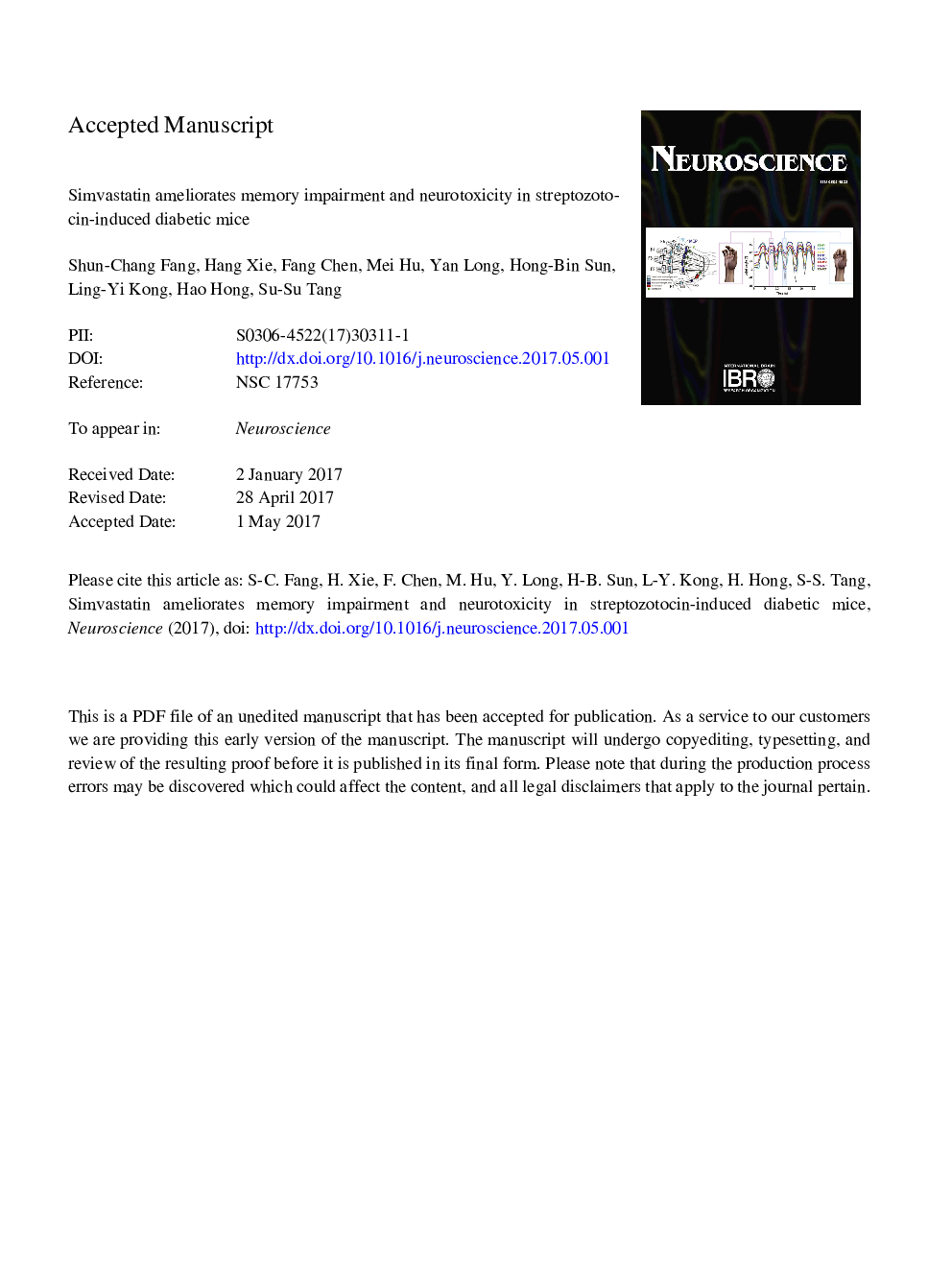| Article ID | Journal | Published Year | Pages | File Type |
|---|---|---|---|---|
| 5737604 | Neuroscience | 2017 | 32 Pages |
Abstract
Diabetes comes with an additional burden of moderate to severe hyperlipidemia, but little is known about the effects of lipid-lowering therapy on diabetic complications such as diabetes-associated cognitive decline. Herein we investigated the effects of statins on memory impairment and neurotoxicity in streptozotocin-induced diabetic mice. Our data indicated that oral administration of simvastatin at 10 or 20 mg/kg for 4 weeks significantly ameliorated diabetes-associated memory impairment reflected by performance better in the Morris water maze and Y-maze tests. The further study showed that these treatments caused significant increase of peroxisome proliferator-activated receptors gamma and decrease of NF-κB p65 in nucleus of hippocampus and cortex, and ameliorated neuroinflammatory response as evidenced by less Iba-1-positive cells and lower inflammatory mediators including IL-1β, IL-6 and TNF-α as well as suppressed neuronal apoptosis as indicated by decreased TUNEL-positive cells, increased ratio of Bcl-2/Bax and decreased caspase-3 activity in the hippocampus and cortex. Moreover, simvastatin pronouncedly attenuated amyloidogenesis by decreasing amyloid-β, amyloid precursor protein (APP) and beta-site APP cleaving enzyme-1. As expected, treated with simvastatin, the diabetic mice exhibited significant improvement of hyperlipidemia rather than hyperglycemia. Our findings disclosed novel therapeutic potential of simvastatin for the diabetes-associated cognitive impairment.
Keywords
IODFBGHDL-CAβCMC-NaNF-κBBACEPPARγLDL-CAPPMWMamyloid-βintegrated optical densityEnzyme-linked immunosorbent assayELISACNSBlood–brain barrierBBBcentral nervous systemnuclear factor-κBfasting blood glucosehigh-density lipoprotein cholesterolMorris water mazeamyloid precursor proteinsodium carboxymethyl celluloseLow-density lipoprotein cholesterol
Related Topics
Life Sciences
Neuroscience
Neuroscience (General)
Authors
Shun-Chang Fang, Hang Xie, Fang Chen, Mei Hu, Yan Long, Hong-Bin Sun, Ling-Yi Kong, Hao Hong, Su-Su Tang,
